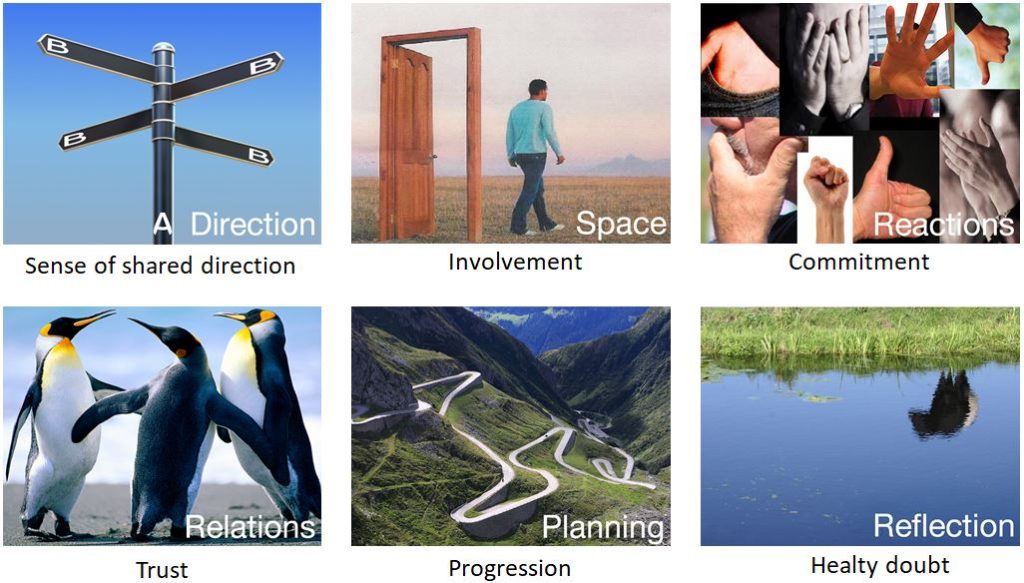Many authors on change management have throught about what makes change successful. So have I. This has resulted in several models consisting of forces, drivers, habits, keys or sources. And naturally, all these models are related.
The question that intrigues me is whether there is a ranking, whether one aspect stands above the rest. I will use the six spotlights from my most recent book ‘A Grip on Change’ to find an answer. These spotlights can also be seen as success factors, because each spotlight is accompanied by a compass: a feeling that tells you whether you are on the right track.
You can see the six spotlights in the image below, with the corresponding compass.

Of course all six are important, otherwise I hadn’t included them. But is one more important that another?
A sense of shared direction
The answer I came up with first is shared direction. Where change comes to a halt a lack of shared direction is almost always one of the causes. The urgency isn’t clear, it isn’t shared, the ambition isn’t recognised as a solution to the urgency, the aims is too high or a means is turned into the objective.
Commitment
But even if a direction is clear, it cannot come to life until people commit to it. When they feel intrinsically motivated to show that the behaviour is part of it. There is a reason why I fully dedicated my book ‘How to get commitment’ to this success factor.
In another publication I cited where the sponsorship of the top is indicated as a greatest success factor**. Sponsorship is nothing other than the connection of the change leader.
Is commitment therefore the greatest success factor?
Trust
No. After all, no matter how successful direction and commitment are, there are a means. A means to make a change a success. Only one success factor is an objective in itself, and that is the relationship. In which you see each other as the person you are, in which you can trust each other.
There’s good reason why no song, novel or film is about Direction, or about planning. They are all about what makes us tick , make us happy and puts us most to the test as people: the connection we feel with the other.
Reflection
But we’re not there yet. Situations bothered by a lack of direction, commitment and trust always lead you to the question: ‘so what am I to do?’. Because if you don’t ask this question, you are only complaining about others.
If you start to wonder about what you need to do, you will undoubtedly stumble on your own convictions, patterns, resistance and pitfalls. The only way of breaking through these obstacles is by allowing doubt in your own leadership. So you can add value to everyone’s sense of direction, commitment and trust.
So if I have to choose the success factor I find most important in change, I choose Reflection.
I’m Annemarie Mars: speaker, author and advisor on change.
It is my job to get people thinking about the way they give room, direction and guidance to organizations in motion. So that they can look for the essential conversation to change together.
Want to know more about my (online) presentations? Click here.


